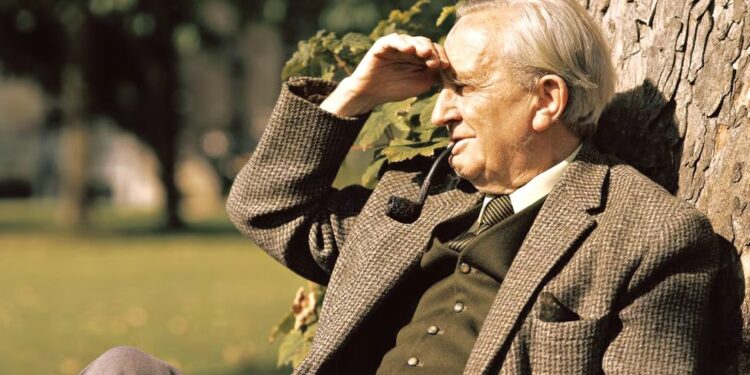John Ronald Reuel Tolkien, often referred to as J.R.R. Tolkien, is a name synonymous with the realm of fantasy literature. Born on January 3, 1892, in Bloemfontein, South Africa, Tolkien’s creative genius would go on to shape the landscape of modern fantasy fiction.
Tolkien’s early life was marked by tragedy, with the early loss of both his parents. However, these hardships seemed to fuel his imagination. He developed a deep love for languages, which would later be a cornerstone of his literary work. His proficiency in languages, including his own constructed languages like Elvish and Dwarvish, lent authenticity to the intricate world-building that would become his trademark.
Tolkien’s magnum opus, “The Lord of the Rings,” published between 1954 and 1955, is undoubtedly his most celebrated work. Set in the fictional realm of Middle-earth, this epic tale of hobbits, wizards, elves, and dark forces captured the hearts and minds of readers worldwide. The story’s depth and complexity, combined with Tolkien’s meticulous attention to detail, made it a literary masterpiece.
What set Tolkien apart was his ability to interweave profound themes into his narratives. His experiences as a soldier in World War I greatly influenced his writing, leading to themes of heroism, friendship, and the corrupting influence of power. These themes resonate deeply with readers, giving his stories a timeless quality.
Tolkien’s impact extends beyond the written word. His works inspired a generation of fantasy writers and paved the way for the fantasy genre’s modern popularity. They also laid the foundation for the fantasy genre in film and television, most notably through Peter Jackson’s cinematic adaptations of “The Lord of the Rings” and “The Hobbit.”
In addition to his novels, Tolkien’s academic career as a philologist and his lectures on mythology and folklore at Oxford University contributed to his legacy. His scholarly pursuits not only enriched his own storytelling but also inspired countless scholars and writers to explore the realms of mythology and fantasy.
J.R.R. Tolkien passed away on September 2, 1973, but his literary legacy endures. His books continue to captivate readers of all ages, and his impact on the world of literature and pop culture remains immeasurable. Tolkien’s ability to transport us to fantastical worlds while exploring the depths of the human spirit ensures that his name will forever be synonymous with the magic of storytelling.




Recent Comments